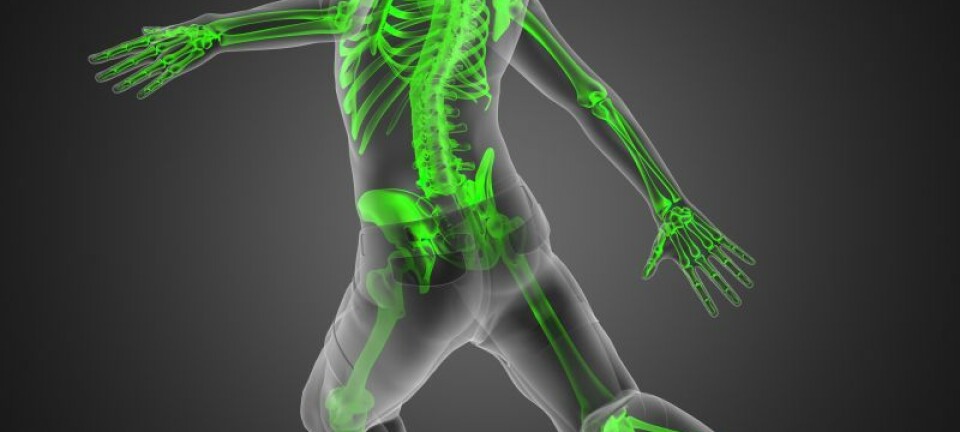
The darker side of workouts
Do you exercise to escape from a depressing daily life? If so, think twice next time before putting on those jogging shoes.
Many use physical exercise as a flight from reality. After a stressful day it can be pleasing to tie on some running shoes and catch one’s stride, getting into the groove where time and space dissolve.
But not all training is healthy. Nor are all escapes from reality.
For some, sweating it out at gyms functions like the proverbial ostrich’s head in the sand. The difficulties of grappling with the weight of real problems can be averted by lifting more palpable weights. Real obstacles can be seemingly left behind by hours on a treadmill.
Two groups of super trainers
Frode Stenseng, an associate professor at the Norwegian University of Science and Technology (NTNU) in Trondheim, asked 207 active people to fill out a questionnaire tracking down various motivations for physical exercising.
He found that he could group the persons roughly into two categories. Some showed a healthy motivation for training, others revealed a less beneficial one.
Those who used training as means of escaping reality in a healthy way were better at planning, controlling their emotions and were less impulsive. These persons scored high on the researcher’s scale for evaluating quality of life.
The other group fled head over heels into their training regimes. They did so to supress emotions and consign negative issues and daily life problems into oblivion. These persons were less adept at planning or maintaining emotional control. They were also more impulsive.
Guilt and shame
When you become seriously engrossed in an activity you might reach a level of flow, a kind of rush. This is usually a positive state.
But it turned out that the two categories of people felt differently after their exercise sessions, when they were showering.
The aforementioned group experienced the training session as a boost of good feelings. They felt perky and satisfied. Their mood improved, thanks to the physical activity.
The other group was more prone to be clobbered by negative feelings afterwards.
The researcher thinks they were plagued by feelings of guilt and shame for having spent so much time on exercising rather than setting their lives straight.
Like getting drunk or stoned
The state of mind you get in when exercising hard can resemble the results of various types of intoxication, according to Stenseng.
Upon coming home from a stressful day at work, you might be keen on a glass of wine, or a little chill time playing computer games or surfing the web. You get into a sphere where you forget time and place. The same state of consciousness can be achieved by cross-country skiing at a good pace, or for instance by pumping iron.
This sphere or bubble is not necessarily negative.
“We all have a need to lose ourselves now and then. This activity itself is not problematic. It’s how you relate to it.”
Stensberg thinks individuals who are vulnerable to various forms of addiction can be particularly at risk of using exercising as an escape.
Help to reduce physical escapism
He thinks that personal fitness trainers ought to use the knowledge the researchers acquired.
It might be useful to know what a person’s motives are for training a lot.
“Much of the time they spend exercising can be used, and should be used, doing something wiser. It would be a good idea to help make them aware of it,” he says.
Addiction as a social challenge
Other researchers have also warned about unhealthy attitudes toward training – compulsions and habits along the lines of problems with drugs, gambling, sex, shopping and unhealthy eating. A growing number of young people in Europe are developing lifestyles tainted by addictions in one form or another.
The EU now defines addictions as one of the major social challenges in Europe.
“The addiction becomes a sort of substitute for their participation in work and education, in the family and in recreational activities,” says Jan Erik Karlsen, a professor at the University of Stavanger. Karlsen is involved in an EU project researching the types of lifestyles we can expect from coming generations.
-----------------------------------
Read the Norwegian version of this article at forskning.no
Translated by: Glenn Ostling




































